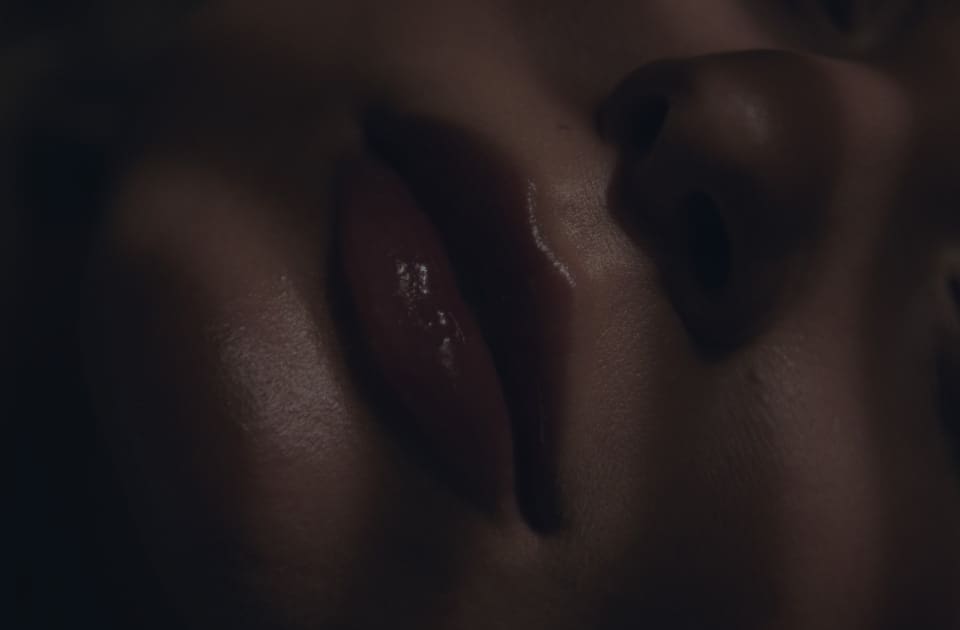McKeown Medical
167 Bath Street, Glasgow, G2 4SQ
Radiofrequency ablation (RFA) is a minimally invasive procedure used for varicose veins, particularly larger veins like the great saphenous vein (GSV) and small saphenous vein (SSV). It involves the use of radiofrequency energy to heat and seal off the affected vein, redirecting blood flow to healthier veins.
Radiofrequency ablation (RFA) is a minimally invasive procedure used for varicose veins, particularly larger veins like the great saphenous vein (GSV) and small saphenous vein (SSV). It involves the use of radiofrequency energy to heat and seal off the affected vein, redirecting blood flow to healthier veins.
Every patient is unique, and during our consultation process, we work with you to develop a bespoke treatment plan based on what you want to achieve.
1 hour
Local
Minimal
Long term
From £3,000
The procedure is carried out as an out-patient, meaning you are free to leave immediately following your procedure. It’s a sterile procedure, meaning you will be positioned on an operating table in a sterile environment before the doctor injects some local anaesthetic to numb the area they will be working in.
When the skin has been prepared and numbed the surgeon will then progress to visualise the problematic vein or veins on ultrasound scan before inserting a specialised catheter into the vein through a small incision – typically near the knee or the ankle. The catheter is then carefully advanced through the vein whilst the surgeon watches on the ultrasound scan to make sure it remains in the correct place. The catheter is advanced through the varicose vein until the end of its path, typically when it feeds into a deeper vein (like the femoral vein or the popliteal vein).
When the surgeon is sure the catheter in the correct position for the entire length of the vein, cool, dilute local anaesthetic is injected around the vein to be treated. This involves four or five further needle punctures. The cool local anaesthetic is required to protect the structures adjacent to the vein from thermal injury.
Next, the radiofrequency energy is delivered through the catheter which heats the wall of the vein, causing it to shrink and collapse. This process seals the vein shut, preventing blood from flowing through it.
The catheter is then removed and a small bandage or compression dressing is applied to the incision site and compression stockings will be applied.
After the procedure you are encouraged to walk around immediately to promote the blood circulation in your legs.
Dr Alex Vesey is our expert consultant vascular surgeon who heads up our varicose vein team. Listen to him explain the radiofrequency ablation treatment.
Hear from our patients about their experience at McKeown Medical.
Thank you to Dr Alex and all of the team! From my ultrasound scan to my treatment, I felt completely looked after and at ease all the way through. The procedure was easy and I was able to walk home! Thanks to everyone.
Gary - A McKeown Medical patient October 2024
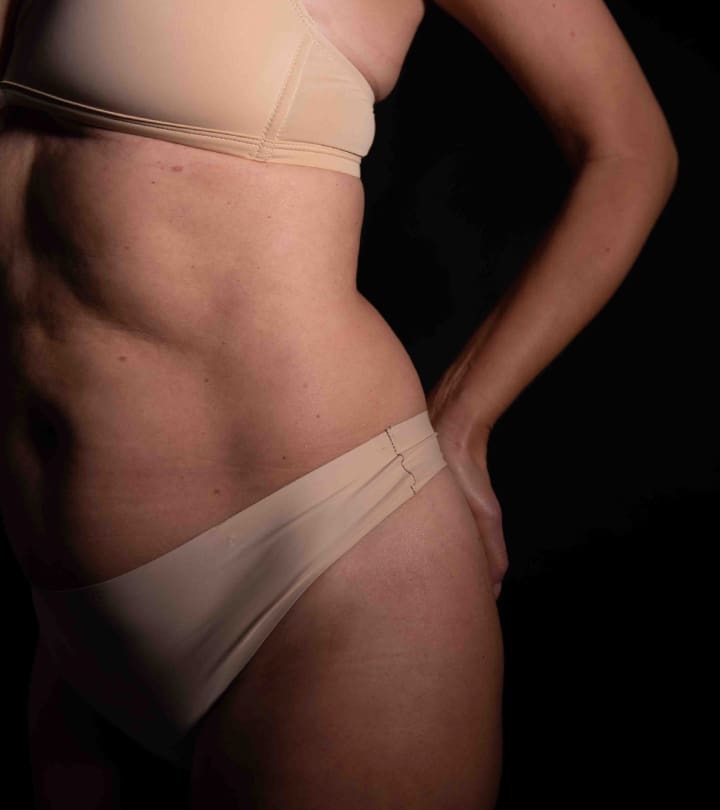
Finding the right treatment for you is the most important factor in ensuring that you are on the correct path to achieve the results you desire. Our pre-consultation form helps us to identify your needs and, ultimately, gets you on the right path to achieving your optimal results.
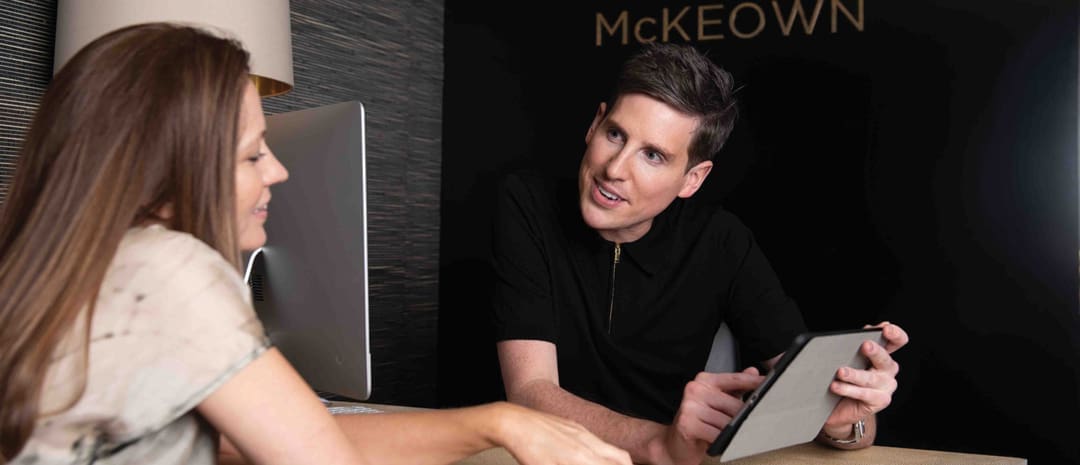
We believe in clear, transparent pricing. We have no vague ‘from’ prices, that suddenly increase after your consultation. The prices here are accurate and reflect what you will pay for our level of expertise, technology and service.
Most patients report only mild to moderate discomfort following their procedure, described as ‘tightness’ or ‘soreness’ in the leg. This can be managed using simple over the counter pain killers such as paracetamol or ibuprofen (it’s rare for us to prescribe stronger medication). Wearing the compression stockings we provide after surgery will also help to reduce discomfort and swelling allowing you to get about more easily.
You should only experience mild bruising at the site where the cathether was inserted, and possibly along the length of the vein that was sealed off. Likewise, swelling from the procedure tends to be relatively minor and short lived.
It takes a while to see the benefits of the RFA procedure. Although the main vein is closed down at the time of the procedure, there is typically a period of several weeks of mild bruising and swelling and so there are usually no immediate benefits. Most patients start to see an improvement in their symptoms between 1 and 3 months after the procedure with results continuing to improve up to six months after the procedure.
Whilst the procedure is very effective at closing down the largest vessels, there are often smaller vessels that feed from the large vessels that take time to shut down or can persist after the procedure. It is normally possible to improve these smaller vessels with sclerotherapy foam injection. Most patients who have an RFA procedure will also require one or two sessions of foam sclerotherapy at a later stage to achieve optimal results.
Radiofrequency ablation (RFA) for varicose veins is generally safe and effective, but like any medical procedure, it carries some potential side effects and risks. These are typically mild and temporary, but it’s important to be aware of them before undergoing the procedure.
Bruising, swelling and discomfort are common and to be expected after the procedure. Less commonly, phlebitis – or inflammation of the blood vessel – can become a problem that requires treatment with anti-inflammatory medication. Very rarely, an infection at the incision site can require additional treatment with antibiotics. Injury to nerves surrounding the blood vessel can cause temporary numbness or tingling. Deep vein thrombosis is the most serious complication, that is believed to affect between 1 in 100 and 1 in 1000 patients. This requires immediate medical attention to prevent it from progressing to a pulmonary embolism.
The RFA procedure is usually very effective, particularly for patients who have been properly assessed, diagnosed and had the correct treatment for their condition. However, a small percentage of patients – despite the best care and attention – will experience recurrence of the varicose veins. This is usually around 5%.
The key to achieving the best outcome when treating your varicose veins is to ensure you are treated by an experienced vascular surgery specialist that you feel you can trust and making sure you are properly assessed and have a bespoke treatment plan that you follow, including all aftercare instructions.
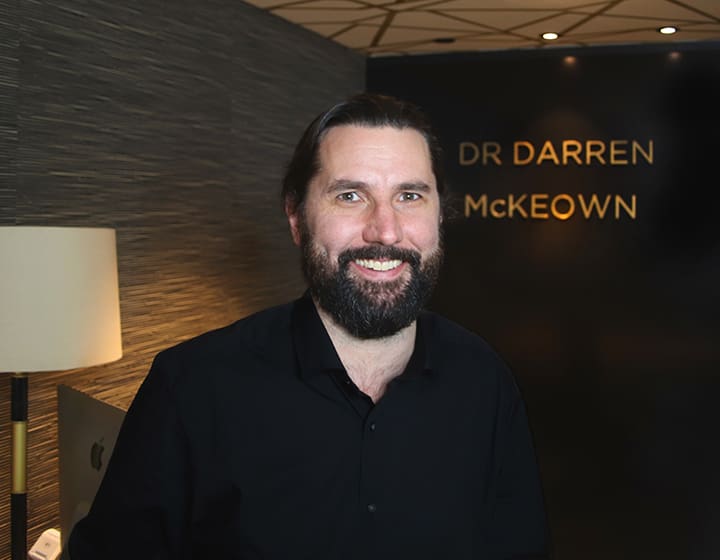
Our vascular surgery service is led by Dr Alex Vesey. Alex is a highly skilled vascular surgeon with extensive experience in diagnosing and treating a wide range of vascular conditions. With a focus on minimally invasive techniques, Dr. Vesey is dedicated to providing patients with the most advanced and effective treatments for venous diseases, with a particular interest in the treatment of varicose veins.

Our vascular surgery service is led by Dr Alex Vesey. Alex is a highly skilled vascular surgeon with extensive experience in diagnosing and treating a wide range of vascular conditions. With a focus on minimally invasive techniques, Dr. Vesey is dedicated to providing patients with the most advanced and effective treatments for venous diseases, with a particular interest in the treatment of varicose veins.
We offer a full range of treatments for varicose veins, each one tailored to your own unique circumstances.
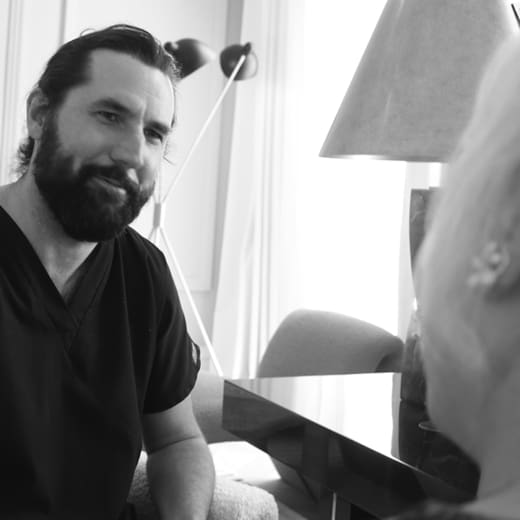
Radiofrequency ablation (RFA) and endovenous laser ablation (EVLA) are two minimally invasive treatments used to effectively treat varicose veins, but...
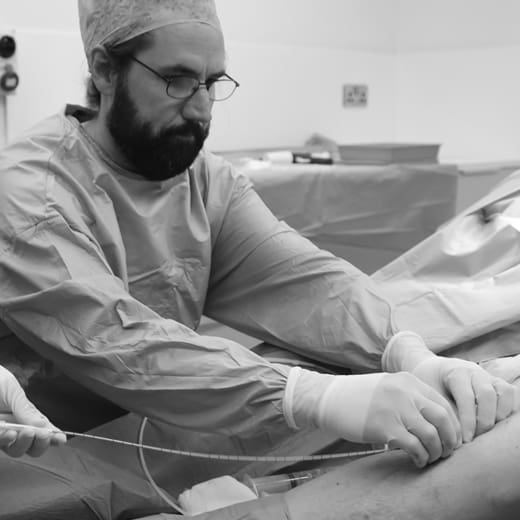
If you're struggling with the discomfort, swelling, or unsightly appearance of varicose veins, Radiofrequency Ablation (RFA) could be the solution...
1 / 3
2 / 3
3 / 3

Radiofrequency ablation (RFA) and endovenous laser ablation (EVLA) are two minimally invasive treatments used to effectively treat varicose veins, but...

If you're struggling with the discomfort, swelling, or unsightly appearance of varicose veins, Radiofrequency Ablation (RFA) could be the solution...
Keep up to date with the latest news from McKeown Medical and get access to expert insights, our latest before and afters and exclusive offers.
